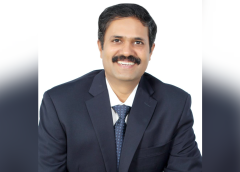
Road Safety 2.0 :How Technology Measures Can Prevent Accidents
Road Safety 2.0 : Road traffic injuries (RTIs) are the eighth leading cause of death for all ages and the first cause in the 5–29 age group. Close to 1·4 million people die each year, and up to 50 million are injured by RTIs. More than 60% of these deaths are attributable to vulnerable road users (i.e., pedestrians, cyclists, and motorcyclists).
Road traffic collisions reduce countries’ annual GDP by a range of 1–3%. India fares worst with the highest number of global road fatalities, at every four minutes, one person dies on Indian roads denting the Indian economy by nearly US$ 38.9 billion, equivalent to 1.85% of GDP.
Identifying Road Safety & Risk Issues
Road Safety 2.0 has always been a complex and multifaceted issue. Despite many factors leading to fatal and non-fatal road injuries, the evidence identifies that four main risk factors consistently increase the risk for road injuries and deaths and are hence acknowledged by the WHO as major risk factors under the Safe System Approach.
- speeding,
- drunk driving,
- helmet use, and
- use of seatbelt or child restraint
According to a study published in The Lancet journal, at least 30,000 lives in India could have been saved just by the implementation of simple road safety measures to prevent the above four main risk factors.
World Economic Forum-led Road Safety 2.0 pilots also reveal that majority of accidents are due to human errors and can be prevented with the use of technology to compensate for human limitations.
Besides human errors, the deficits in road engineering that create accident-prone spots and the sudden appearances of potholes and poor safety measures in the vehicles also contribute to the accidents. But the major reason remains the driving behaviour.
How to Improve
Having identified the major risk factors of road accidents, the next question comes how to improve the driver’s behaviour to ensure adherence to traffic rules.
The study reveals that the behaviour can be changed either by self-motivation or by the fear of penalty through strict enforcement.
For a densely populated country like India, encouraging & self-motivating drivers for better driving through incentives & rewards work out to be a better option.
Reward Good Drivers
Our theory of change has been to reward good drivers rather than wasting time, energy, and money on identifying & penalising bad drivers.
The success of World Economic Forum (WEF) led Road Safety 2.0 pilots demonstrated that this theory is more effective with a drastic reduction in accidents.
Safe Driving Scores
The driver’s behaviour which is a subjective matter, can be tracked using IoT and converted into scores that may be called Safe Driving Scores.
Self-motivation schemes for encouraging SDS for all drivers like CIBIL score and then linking it with Insurance premiums, rebates at workshops, and wayside amenities are a game changer for road safety in India.
Ecosystem to Reward Safe Driving Scores
There is a need to create an ecosystem to reward these scores.
Insurance companies, who are the main stakeholders, were not coming forward due to regulatory restrictions. Now IRDAI has given nod for the change. This will reduce the dependency on third-party funding for road safety and will create a self-sustainable ecosystem.
Good Driving Scores mean better drivers, who will get more rebates in insurance premiums. Similarly, a good/careful driver will lead to lesser accidents and thus lesser pay-out for insurance companies.
Thus drivers will carve for higher Safe Driving Scores to get maximum rebates in the insurance premiums, thus will drive safety resulting in lesser road accidents. A win-win for everyone.
Tech-Based Automated Enforcement System
However, the self-motivating measures for improving drivers’ behaviours alone can’t be a complete solution for road safety. Strict & transparent enforcement systems of traffic rules are equally essential. Both are complementary to each other.
The enforcement system needs to be automated, comprising speed cameras, incident detection cameras and ANPR systems, IoTs and high-end software for real-time detection of violations and issuance of automated penalty challans with a robust recovery system.
But the problem with an automated system is not the availability of technology but the availability of funds. The equipment and software of automated enforcement systems are firstly expansive and secondly require skilled manpower for flawless operations. Most Indian cities /municipalities don’t have enough financial resources. Here we require the PPP model.
Automated Enforcement System on PPP Model
World Economic Forum did another pilot for the automated enforcement system in the PPP model with amazing results.
It demonstrated an economically viable and successful PPP model for the installation and operations of the automated enforcement system. The technology companies / OEMs are ready to bear the upfront installation cost and manage through their skilled manpower and recover their Capex & Opex cost as a part of challans/penalty recovered by the government. This is not only financially viable but will also bring some additional revenue to cities/municipalities in addition to improving road safety and providing a lot of job opportunities.
The global community is still far from achieving Sustainable Development Goal 3.6, which calls for a 50% reduction in road traffic injuries and deaths by 2030. India is right on the target to achieve it much earlier. Minister of Road Transport and Highways Mr Nitin Gadkari is quite positive about it and is aiming to reduce 50% fatalities on Indian roads by 2025 itself.


